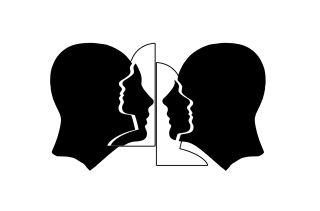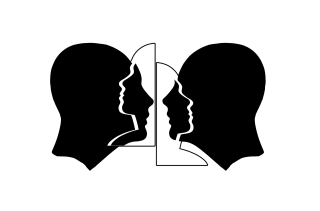EMPATHY- Cultivating Empathy Through Pain. How physical pain can enhance understanding of others. Reviewed by Vanessa Lancaster

KEY POINTS-
- Empathy, the ability to imagine and understand another person's perspective, is beneficial to cultivate.
- Empathy fosters connection with others and increases the desire to help others.
- Experiencing physical pain increases awareness of distress which may facilitate understanding of others' pain.

Empathy, the ability to imagine and understand another person's perspective, is a beneficial trait to cultivate. It is natural to be focused on our perspectives, thoughts, and feelings and be closed off from the perspectives of others, particularly when they differ from our own. Experiencing physical pain can increase our awareness of our sorrow and other people's. We more intimately know what it is like to feel pain and distress, making it easier to recognize and understand the pain of others.
While we don’t have to experience exactly what others do to have empathy and compassion for them, our personal experiences help us make sense of and understand the world and provide reference points for appreciating the experiences of others. Also, experiencing pain often leads us to support and help others more. We not only have a greater understanding of others’ experiences, we feel more connected to them and are more likely to take action to help them.
Living with chronic pain can be an isolating experience. If those in our immediate social circle don’t have chronic pain, we can feel alone. It’s easy to imagine that others have a glorious, pain-free life while we are suffering. When we are living with physical pain and listen to others talk about their pain, we may have the thought, “Yeah, I get it.” or “I know exactly what your mean.” or “Me too.” There is a shared understanding and connection. The sense of being seen.
Listening to and understanding others also helps us to further understand ourselves. Empathy involves taking on another person’s perspective. When we broaden our perspective, we may see things about ourselves and our experience with chronic pain in a new way.
Empathy is not something we either have or don’t. It is a skill that can be intentionally developed and cultivated. While experiencing physical pain can set the stage for stronger empathy, it is not a given.
Cultivating empathy
The tips below offer suggestions for fostering empathy and a sense of connection when interacting with others.
- Be curious, ask questions, and listen to the answers. Open-ended questions that cannot be answered with a simple yes or no are helpful.
- Find similarities, not differences. Commonalities can help foster empathy. While no two experiences are exactly alike, tune into what you have in common.
- Focus on listening, not talking, when having conversations. Use non-verbal cues such as eye contact and nodding to show the other person you are listening.
- Pay attention and practice being fully present. Limit distractions.
- Be willing to learn. You don’t have to agree with someone else’s perspective to understand it. Focus on learning about others’ experiences.
- Be mindful of making assumptions, jumping to conclusions, or mind-reading. Slow down and internally acknowledge that even if you have had a similar experience, you don’t know what another person is thinking and may not know the reasons why something is happening. In other words, what you are thinking may be inaccurate.
Living with chronic pain can provide an understanding of discomfort and distress that may not exist otherwise. I encourage you to practice intentionally engaging with and listening to others and see if your understanding of pain may translate to deeper empathy for others.
- Questions and Answers
- Opinion
- Story/Motivational/Inspiring
- Technology
- Art
- Causes
- Crafts
- Dance
- Drinks
- Film/Movie
- Fitness
- Food
- Games
- Gardening
- Health
- Home
- Literature
- Music
- Networking
- Other
- Party
- Religion
- Shopping
- Sports
- Theater
- Wellness
- News
- Culture
- War machines and policy

